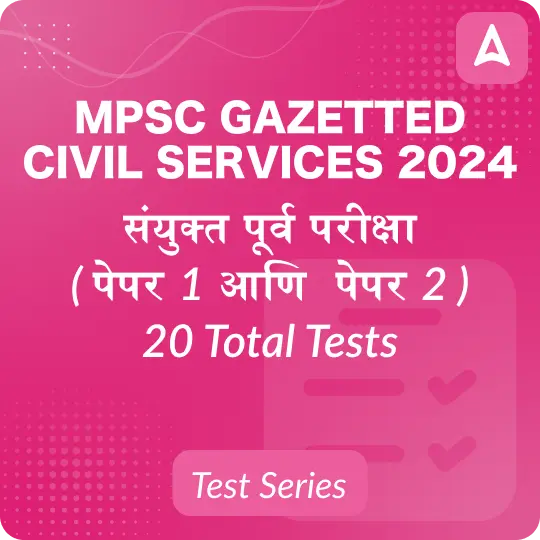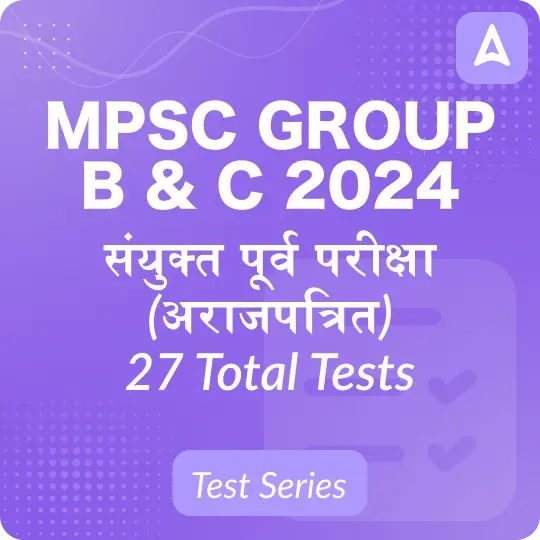Table of Contents
On amendments to the Waqf Act
(The Hindu, 12-08-24)
On August 8, the Union government introduced a Bill in the Lok Sabha to amend the 1995 Waqf Act (1995 Act).
The draft legislation, proposed to be renamed the Unified Waqf Management, Empowerment, Efficiency, and Development Act, 2024, is heralded by the government as a comprehensive overhaul aimed at enhancing “the efficiency of the administration and management of the waqf properties.”
What is India’s ‘waqf’ law?
- In Islamic law, waqf refers to property dedicated in the name of God for religious and charitable purposes.
- This can include any movable or immovable property set aside for the public good, embodying an act of piety that allows Muslims to extend their charitable deeds beyond their lifetime.
- A waqf can be established through a formal deed or instrument, or a property can be deemed waqf if it has been used for religious or charitable purposes over an extended period.
- The proceeds from such properties are typically used to maintain mosques, fund schools or provide for the poor.
- However, once designated as waqf, the property cannot be transferred through inheritance, sold, or given away.
- A non-Muslim is also allowed to create a waqf as long as the objective of creating it aligns with Islamic principles.
- In India, waqfs are regulated by the 1995 Act. Waqf properties are identified and delineated through a survey conducted by the State government.
- A survey commissioner, appointed under the Act, identifies these properties through local investigations, witness testimonies, and review of public documents.
- Once identified, the properties are recorded in the State’s official gazette, and a list is maintained by the State Waqf Board.
- Each waqf is managed by a mutawalli (custodian) who oversees its administration. While similar to a trust established under the Indian Trusts Act of 1882, a waqf, unlike a trust, cannot be dissolved by a Board.
What is the role of the Waqf Board?
- The 1995 Act establishes Waqf Boards in each State to oversee the administration of waqf properties within their jurisdiction.
- These Boards are considered juristic persons, allowing them to sue or be sued in a court of law.
- Each State Waqf Board has a chairperson and includes one or two nominees from the State government, Muslim legislators, recognised Islamic scholars, and mutawalli of the waqfs.
- The Act also mandates the appointment of a full-time Chief Executive Officer for each Board, who must be a Muslim by faith and hold at least the rank of Deputy Secretary in the State government.
- The Waqf Board is authorised to manage waqf properties and take measures to recover lost assets.
- It can also sanction the transfer of immovable waqf property through sale, gift, mortgage, exchange, or lease. However, this would require the approval of at least two-thirds of the Board members.
- Amendments to the 1995 Act in 2013 further strengthened the Board’s authority and made the sale of waqf properties nearly impossible, as neither the mutawalli nor the Board had the right to sell a waqf property.
What are the key changes in the proposed law?
- Definition: Only Muslims (practicing for 5+ years) can create waqfs through formal deeds
- Abolishes ‘waqf by use’ concept.
o This concept permits a property to be considered waqf based on usage, even if the original deed was disputed. Traditionally, waqf properties were often dedicated orally until formal documentation became standard practice.
- Government properties cannot be claimed as waqf.
o Any government property identified or declared as waqf property, before or after the commencement of this Act, shall not be recognised as waqf property
- District collectors to survey waqf properties.
o Previously managed by survey commissioners under the 1995 Act
- The district collector as the final arbiter to determine whether a property qualifies as waqf.
o Earlier it was the Waqf Tribunal
o Once a determination is made, the collector must update the revenue records and submit a report to the State government.
- Centralized registration system to improve the accuracy of Waqf property records.
o All information about waqf properties must be uploaded to this portal within six months of the new law’s enactment.
- Establishes the Central Waqf Council — a national advisory body under the Ministry of Minority Affairs.
o The Council ensures the uniform administration of waqf properties across the country and is headed by the Union Minister of Minority Affairs.
o It also advises the Union government on waqf-related issues, including policy development, implementation of waqf laws, and resolution of inter-State disputes.
- Non-Muslims included in Waqf institutions – the Central Waqf Council, State Waqf Boards, and waqf tribunals
o It empowers the Centre to appoint three MPs (two from the Lok Sabha and one from the Rajya Sabha) to the Central Waqf Council without specifying that they have to be Muslims.
o Under the 1995 Act, the three MPs to be included in the Council had to be from the Muslim community.
o Also, State Waqf Boards have to include two non-Muslims and two women as members.
- Waqf tribunals: Two-member body, six-month dispute resolution
o The tribunal will now consist of a district judge and an officer of joint secretary rank to the State government.
- Centre can audit waqfs
o Auditor to be appointed by the Comptroller and Auditor-General of India, or by any officer designated by the Central Government for that purpose
o Waqf Boards are required to audit their accounts annually, selecting auditors from a panel constituted by the State governments
- Court intervention allowed in disputes
o It removes the finality of decisions made by waqf tribunals, allowing aggrieved parties to appeal directly to the concerned High Court.
What are the potential implications?
- Need to implement measures that adequately protect waqf properties without infringing upon the freedom of religion guaranteed under Article 25 of the Constitution.
- The increased centralisation of waqf property management might undermine the autonomy of Muslim religious institutions.
- It raises another question as to whether non-Hindus will be allowed on Hindu temple boards in States such as Tamil Nadu, Kerala, and Karnataka.
- Excessive government control is at odds with the principles of economic liberalisation.
- After its introduction in Parliament, the Bill was referred to a joint parliamentary panel for further scrutiny after the Congress-led INDIA bloc opposed the proposed law in its present form.
Hindenburg and allegations against SEBI Chief
(The Hindu, 12-08-24)
What is Hindenburg Research?
- It is a US-based investment research firm, founded by researcher Nathan Anderson in 2017.
- The company was named after the Hindenburg disaster in 1937, which was a man-made and avoidable explosion of a German airship.
- The company specialises in forensic financial research, conducting investigations and analyses on accounting irregularities, unethical business practices, and undisclosed financial issues or transactions.
- Hindenburg’s research often leads to significant drops in the stock prices of the companies it targets. The firm profits from these declines by short-selling the stocks, meaning they bet on the price going down
What was Hindenburg Research Report on the Adani Group in 2023?
- Hindenburg accused the Adani Group of engaging in brazen accounting fraud, including inflating revenues and profits, and manipulating balance sheets.
- The report alleged that the Adani Group had manipulated its stock prices through a network of shell companies and related-party transactions
- It alleged that Rajesh Adani (Gautam Adani’s younger brother) had been arrested twice for forgery and tax fraud, but was promoted to managing director of the group.
- According to the firm, Adani’s elder brother (Vinod Adani) operated many shell companies, which were central to the claims of money laundering.
What was the investigation into the allegations made by Hindenburg report?
- The SEBI had launched investigations into transactions by the Adani group but the probes did not go very far.
- According to the SEBI, Hindenburg Research had shared its findings on the Adani group with a New York-based hedge fund manager.
- However, Hindenburg’s research rejected SEBI’s claims of sharing the report and called it an attempt to silence those questioning corruption by powerful entities in India.
- The Supreme Court of India ruled that they could not interfere in the SEBI’s jurisdiction to investigate claims against Adani made in the Hindenburg report.
What is the new allegation made by Hindenburg on SEBI?
- The report claims the SEBI chief Madhabi Buch and her husband had stakes in offshore firms owned by Adani’s elder brother.
- These investments predate her appointment as a member of SEBI in 2017 and as chairperson in 2022.
- Weeks before Buch’s appointment to SEBI in 2017, her husband took over sole control of their investments to avoid coming under the scanner.
- The report suspects this reason for SEBI’s unwillingness to take meaningful action against alleged offshore shareholders in the Adani Group.
- However, Madhabi Buch and her husband released a joint statement denying all allegations against them.
Looking the Issue from the Perspective of the ‘Conflict of Interest’:
- The opposition parties called on the central government to take immediate action to eliminate all conflicts of interest in the SEBI investigation of the Adani Group.
- A conflict of interest occurs when an individual’s personal interests – family, friendships, financial, or social factors – could compromise his or her judgement, decisions, or actions in the workplace.
- It is always best to be transparent and accountable to eliminate either the perceived or actual conflict of interest.
- In India, the Companies Act 2013 states that directors must not involve themselves in situations where there is direct or indirect conflict with the company’s interest.
- The duties of the directors are to avoid not only the actual Conflict of Interest but also the potential Conflict of Interest.
अड्डापिडीया संपादकीय विश्लेषण-12-08-24 Free PDF (English) डाउनलोड करण्यासाठी येथे क्लिक करा
महाराष्ट्रातील सर्व स्पर्धा परीक्षांसाठी ऑनलाईन क्लास, व्हिडिओ कोर्स, टेस्ट सिरीज, पुस्तके आणि इतर अभ्यास साहित्य खाली दिलेल्या लिंक वर क्लिक करून मिळावा.
अड्डा 247 मराठीचे युट्युब चॅनल
अड्डा 247 मराठी टेलिग्राम ग्रुप
महाराष्ट्र महापॅक







